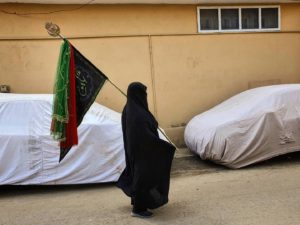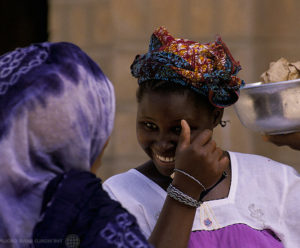International Women’s Day on 8 March brings a welcome focus on women’s rights and equality at a time when the highly gendered impacts of Covid-19 have the potential to threaten decades of slow progress. Globally, women are experiencing the unequal impacts of the pandemic ranging from the increased need for unpaid care to rising domestic violence and higher risk of lost livelihoods in a new era of ‘shecession’.
To help respond to the complex challenges raised and prevent a stalling of progress on women’s rights, IDS researchers and partner organisations have moved quickly to work with communities to identify actionable ways to support gender equality across South Asia, Sub-Saharan Africa, Latin America and the Middle East.
Myriad impacts of Covid-19
While Covid-19 had immediate and very direct effects on populations globally, it is the scale and complexity of the knock on, or secondary, impacts that could have the greatest consequence for women’s rights. For example, the IDS-led Coalition for Religious Equality and International Development (CREID) through its work with religious minority groups, identified examples including a significant rise in domestic violence and rape in Iraq, Myanmar and Nigeria. In these countries, lockdown measures, lack of income and lack of access to services such as refuges and hotlines compounded pre-existing problems but fundamentally worsened a situation where many women have few rights and little recourse to justice.
These findings followed an IDS report on the social impacts of Covid-19 produced for the UK FCDO, which highlighted a significant risk of reversal in women’s and girls’ economic empowerment, voice, and agency, particularly if action was not taken quickly to address the immediate and longer-term impact of the pandemic.
Women were found to have reduced access to services to help with gender-based violence sexual and reproductive health services as many health centres closed during lockdown which in turn could contribute to millions more unintended pregnancies. School closures mean many in many countries that girls are missing out on education and in some cases face increased risk of child marriage. Taken together, these impacts will mean that Covid-19 will turn back the clock on the gains that had been made in gender equality and women’s rights.
Understanding what is needed to mitigate the impact on women’s rights requires better insights into the contextual experience of the pandemic globally. This has led researchers within the IDS Action for Empowerment and Accountability (A4EA) programme to work in Pakistan on improving the information and support available by basing it on women’s experiences. Their first results were recently published highlighting the gendered perceptions and exposure to Covid-19 in Pakistan.
Countering backlash against gender equality
The impact of Covid-19 has been alongside an escalation of trends that have highly negative impact on gender equality. We live in an age where there is an escalating backlash globally against the gains made for women’s rights with direct action taken to close down women’s participation in civic space.
This has to be redressed, with action needed to support women in being heard while defending their rights, including in online digital spaces. This has prompted IDS to convene the countering backlash and supporting women’s empowerment in South Asia programmes that analyse where backlash emerges and ways to work together, including through intersectional coalitions.
This work has been alongside engaging with women’s rights organisations and rights-based activists on the best tactics for mobilising and coalition building for gender justice. A key part is considering how protest movements can mobilise and effect change around social issues. This led to the Why do we march? podcast, developed as part of A4EA, which shares insights and experiences of women who take part in the now annual Aurat March in cities across Pakistan.
Women’s rights and freedom of religion or belief
Alongside tackling emerging issues such as gender backlash, is how to improve understanding of the ‘blind spots’ in research relating to women’s rights. In feminist and freedom of religion or belief (FoRB) scholarship, there is a gap in research on the experiences of the intersection of religious marginality, economic exclusion, and gender inequality. This is being addressed by CREID in a special collection of papers on women from religious minority backgrounds, the first of which looked at the case of Pakistan, who are socioeconomically excluded and vulnerable to multiple sources of gender-based violence. The research shows how these women are falling through the cracks of the ‘leave no one behind’ agenda.
Achieving equality relies on political participation
The scale and complexity of the challenges to gender equality have been laid bare by the pandemic which has exacerbated so many pre-existing issues. As we look to how we move forward from the pandemic, it means there must be sustained attention on how women participate in politics at all levels. This is fundamental to building democratic and inclusive societies in countries of all income levels, faiths and cultures.
While the UN states that women’s political participation is a necessary ingredient for a peaceful and resilient society, there remain large gender gaps remain in this area in many countries around the globe. This was highlighted in IDS research of Northern and Southern Nigeria that considered how best to support women enter political office and actively participate in political processes.
The issue of political participation and how to level the playing field of policy making is a crucial one for society, particularly when we consider how to overcome not only the impacts of the pandemic but also the universal development challenges more generally. To join the debate, register for our online event on the 18 March where we’ll be joined by an international panel of speakers sharing their experiences of being a woman in politics, driving change for gender equality.


